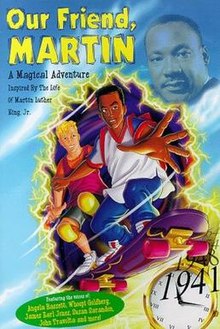Plot
Miles Woodman, an African-American boy who is a fan of Hank Aaron and attends Martin Luther King Jr. Middle School, is performing academically poorly. His teacher Mrs. Clark tells him he could repeat 6th grade should his grades not improve. Miles and his class visit Martin's childhood house, which has now become a museum dedicated to him. He and his white best friend Randy Smith explore Martin's bedroom but are caught by the museum's curator Mrs. Peck, who winds up an old watch.
The boys hold Martin's baseball glove and are transported back to 1941, encountering a 12-year-old Martin playing with his two white friends Sam and Skip Dale until their mother arrives and reprimands her sons for integrating with "coloreds". Martin explains to Miles and Randy that her hatred of black people is that she regards them as "different", but violence would only worsen things. The boys travel three years forward in 1944 and meet a 15-year-old Martin on a segregated train, who explains that blacks and whites are unable to integrate and must be kept separate at all times. They later have dinner with Martin's family. While he goes to do rounds with his father, the boys look in his room and travel 12 years forward in 1956 and meet Martin in his 20s working as a minister at a church. He is holding a meeting about the Montgomery bus boycott set off after Rosa Parks was imprisoned for refusing to give up her seat on a bus; now, black people are refusing to ride buses. Martin is alerted that his house has been bombed; he races home where his wife and newborn daughter have escaped unharmed. His friend Turner announces they'll attack the perpetrators with weapons in retaliation, but Martin stops him, reminding the crowd of Mahatma Gandhi peacefully standing his ground to exile the British colonies from India and of Jesus teaching love for his enemies. Miles and Randy travel to the Birmingham riot of 1963, witnessing firemen and police officers spraying black protesters with firehoses and releasing German Shepherds on them on the order of Bull Connor before arresting them.
The boys are transported back to the museum and rejoin their class at school the next day. They tell Miss Clark about the events before Martin's work before the class watches a videotape of Martin's work. After school, the boys' classmates, Latina girl Maria Ramirez and another white boy Kyle Langon, decide to investigate for themselves how Miles and Randy got the information. When the boys arrive at the museum, Mrs. Peck lets them stay but warns them that when one messes with the past, this can affect the present. Maria and Kyle follow and catch them in Martin's bedroom. The four are transported to the March on Washington for Jobs and Freedom and meet Martin in his 30s along with a young Mrs. Clark. When they return, they discover Martin was assassinated. To save him, they travel back to 1941 and bring 12-year-old Martin to the present; however, only Miles and Martin return together, and the present is now different: the museum is burnt down; Randy and Kyle are racists and no longer friends with Miles or even know him; Miles' school bus driver, Mr. Willis, is also now racist and refuses to allow black students to ride the bus, their school is segregated and instead named after Robert E. Lee (Jefferson Davis' military advisor in the American Civil War, which ended slavery); the principal, Mr. Harris, is also racist and mistreats Mrs. Clark; Maria works as a maid who cannot speak English; and Miles' and his mother now live in poverty.
The next day, Martin surmises that because he left his own time, it created an alternate timeline where his civil rights work never happened. Realizing he must go back to his own time, Martin bids Miles farewell despite the latter's attempted warnings of his assassination. Martin gives Miles his watch before returning to his time, where he is shot dead at the motel and the timeline returns to normal. Miles reunites with Randy, Maria, and Kyle. Mrs. Peck knows about his time traveling and tells him that while they cannot change the past, they can change the future for the better. Miles receives an A on his history project, allowing him to progress to 7th grade. He and his friends then vow to continue Martin's work.

Martin Luther King Jr. was an American Christian minister, activist, and political philosopher who was one of the most prominent leaders in the civil rights movement from 1955 until his assassination in 1968. A black church leader and a son of early civil rights activist and minister Martin Luther King Sr., King advanced civil rights for people of color in the United States through the use of nonviolent resistance and nonviolent civil disobedience against Jim Crow laws and other forms of legalized discrimination.

The Southern Christian Leadership Conference (SCLC) is an African-American civil rights organization based in Atlanta, Georgia. SCLC is closely associated with its first president, Martin Luther King Jr., who had a large role in the American civil rights movement.

Coretta Scott King was an American author, activist, and civil rights leader and the wife of Martin Luther King Jr. from 1953 until his death. As an advocate for African-American equality, she was a leader for the civil rights movement in the 1960s. King was also a singer who often incorporated music into her civil rights work. King met her husband while attending graduate school in Boston. They both became increasingly active in the American civil rights movement.
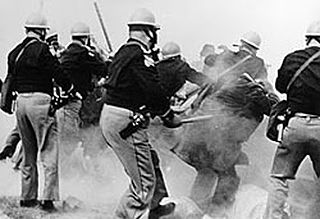
The Selma to Montgomery marches were three protest marches, held in 1965, along the 54-mile (87 km) highway from Selma, Alabama, to the state capital of Montgomery. The marches were organized by nonviolent activists to demonstrate the desire of African-American citizens to exercise their constitutional right to vote, in defiance of segregationist repression; they were part of a broader voting rights movement underway in Selma and throughout the American South. By highlighting racial injustice, they contributed to passage that year of the Voting Rights Act, a landmark federal achievement of the civil rights movement.

Amelia Isadora Platts Boynton Robinson was an American activist who was a leader of the American Civil Rights Movement in Selma, Alabama, and a key figure in the 1965 Selma to Montgomery marches.
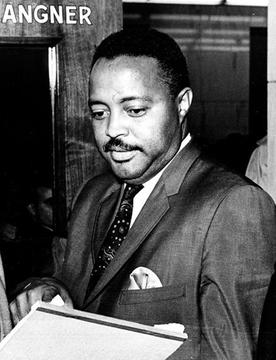
Hosea Lorenzo Williams was an American civil rights leader, activist, ordained minister, businessman, philanthropist, scientist, and politician. He is best known as a trusted member of fellow famed civil rights activist and Nobel Peace Prize winner Martin Luther King Jr.'s inner circle. Under the banner of their flagship organization, the Southern Christian Leadership Conference, King depended on Williams to organize and stir masses of people into nonviolent direct action in myriad protest campaigns they waged against racial, political, economic, and social injustice. King alternately referred to Williams, his chief field lieutenant, as his "bull in a china shop" and his "Castro." Vowing to continue King's work for the poor, Williams is well known in his own right as the founding president of one of the largest social services organizations in North America, Hosea Feed the Hungry and Homeless. His famous motto was "Unbought and Unbossed."

James Joseph Reeb was an American Unitarian Universalist minister, pastor, and activist during the civil rights movement in Washington, D.C., and Boston, Massachusetts. While participating in the Selma to Montgomery marches actions in Selma, Alabama, in 1965, he was murdered by white segregationists and white supremacists, dying of head injuries in the hospital two days after being severely beaten. Three men were tried for Reeb's murder but were acquitted by an all-white jury. His murder remains officially unsolved.
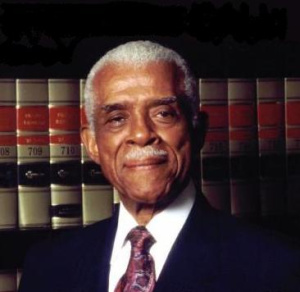
Donald Lee Hollowell was an American civil rights attorney during the Civil Rights Movement, in the state of Georgia. He successfully sued to integrate Atlanta's public schools, Georgia colleges, universities and public transit, freed Martin Luther King Jr. from prison, and mentored civil rights attorneys. The first black regional director of a federal agency, Hollowell is best remembered for his instrumental role in winning the desegregation of the University of Georgia in 1961. He is the subject of a 2010 documentary film, Donald L. Hollowell: Foot Soldier for Equal Justice.
Izola Curry was a woman who attempted to assassinate the civil rights leader Martin Luther King Jr. She stabbed King with a letter opener at a Harlem book signing on September 20, 1958, during the Harlem civil rights movement of the late 1950s and early 1960s. King survived Curry's attempt.
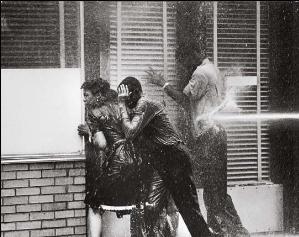
The Birmingham campaign, also known as the Birmingham movement or Birmingham confrontation, was an American movement organized in early 1963 by the Southern Christian Leadership Conference (SCLC) to bring attention to the integration efforts of African Americans in Birmingham, Alabama.

James Gardner Clark, Jr. was the sheriff of Dallas County, Alabama, United States from 1955 to 1966. He was one of the officials responsible for the violent arrests of civil rights protestors during the Selma to Montgomery marches of 1965, and is remembered as a racist whose brutal tactics included using cattle prods against unarmed civil rights supporters.

Cordy Tindell Vivian was an American minister, author, and close friend and lieutenant of Martin Luther King Jr. during the civil rights movement. Vivian resided in Atlanta, Georgia, and founded the C. T. Vivian Leadership Institute, Inc. He was a member of the Alpha Phi Alpha fraternity.

Johnnie Rebecca Daniels Carr was a leader in the Civil Rights Movement in the United States from 1955 until her death.
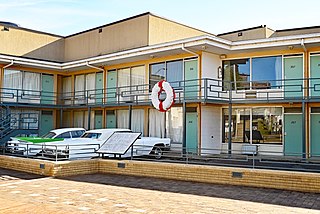
Martin Luther King Jr., an African-American clergyman and civil rights movement leader, was fatally shot at the Lorraine Motel in Memphis, Tennessee, on April 4, 1968, at 6:01 p.m. CST. He was rushed to St. Joseph's Hospital, where he died at 7:05 p.m. He was a prominent leader of the civil rights movement and a Nobel Peace Prize laureate who was known for his use of nonviolence and civil disobedience.

The St. Augustine movement was a part of the wider Civil Rights Movement, taking place in St. Augustine, Florida from 1963 to 1964. It was a major event in the city's long history and had a role in the passage of the Civil Rights Act of 1964.
James Peck was an American activist who practiced nonviolent resistance during World War II and in the Civil Rights Movement. He is the only person who participated in both the Journey of Reconciliation (1947) and the first Freedom Ride of 1961, and has been called a white civil rights hero. Peck advocated nonviolent civil disobedience throughout his life, and was arrested more than 60 times between the 1930s and 1980s.
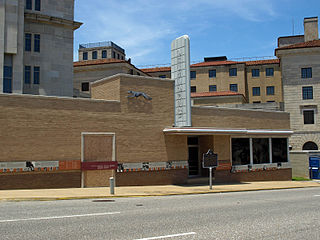
The Freedom Rides Museum is located at 210 South Court Street in Montgomery, Alabama, in the building which was until 1995 the Montgomery Greyhound Bus Station. It was the site of a violent attack on participants in the 1961 Freedom Ride during the Civil Rights Movement. The May 1961 assaults, carried out by a mob of white protesters who confronted the civil rights activists, "shocked the nation and led the Kennedy Administration to side with civil rights protesters for the first time."
The history of the 1954 to 1968 American civil rights movement has been depicted and documented in film, song, theater, television, and the visual arts. These presentations add to and maintain cultural awareness and understanding of the goals, tactics, and accomplishments of the people who organized and participated in this nonviolent movement.

And the Walls Came Tumbling Down is a 1989 autobiography written by civil rights leader Ralph Abernathy. The book charts his life and work with his best friend Dr. Martin Luther King Jr. in their leadership of the Civil Rights Movement to help African Americans obtain equal rights with white Americans. His book engendered much controversy due to Abernathy's allegations of King's infidelity the night before he was assassinated.
